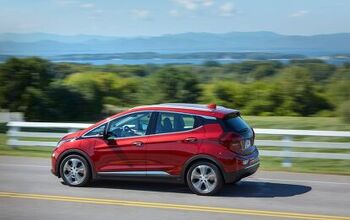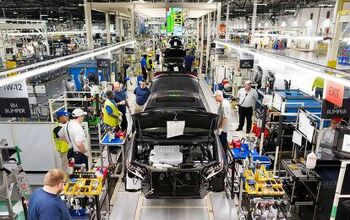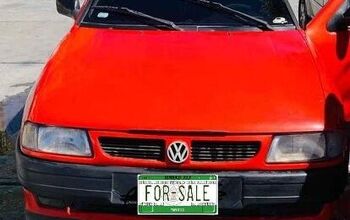Older Volkswagen Diesels Potentially Saved From Execution After EPA Approves Fix

Nearly two years after the mother of all automotive scandals yanked nine years’ worth of Volkswagens out of the “law-abiding citizen” category and into the environmental slammer, U.S. regulators have approved a fix for older VW 2.0-liter diesel cars.
The fix, which many believed would never happen, received an official thumbs up from the Environmental Protection Agency and California Air Resources Board today. The move means potential salvation for 326,000 otherwise doomed VW and Audi vehicles in the United States.
Naturally, not all owners will jump with joy after hearing the news. VW’s massive settlement gave owners the choice of a fix or a lucrative buyback of their illegally polluting vehicle, with many choosing to take the money and condemn their car to hell. Still, others might prefer a future with their high-torque, high-mileage TDI Passat, Golf, Jetta and Beetle. The few owners of Audi A3 TDIs might wants this as well.
The crop of first-generation 2.0-liter cars, which makes up the bulk of the half-million vehicles sidelined in the U.S., span model years 2009 to 2014. An earlier two-phase fix already applies to newer models with Gen-2 engines. (Unsold 2015 TDIs went on sale in April.)
“With the approval, VW will offer owners of these vehicles the choice to keep and fix their car, or to have it bought back,” said the EPA in a release. “To obtain this approval, VW submitted test data and technical information that demonstrates that the modification will reduce emissions without negatively affecting vehicle reliability or durability. VW will thoroughly identify any differences in vehicle attributes (such as fuel economy) so owners may make an informed choice.”
After “fixed” European models caused a wave of complaints, U.S. owners will want to know if there’s a chance their beloved diesel could become a shuddering, gutless dog.
Regardless, the EPA’s green light means the automaker can begin notifying owners of their newfound option right away. Once the replies roll in, the cars can go under the knife.
“The approved modification involves both software and hardware changes,” the EPA stated. “VW will remove the defeat device software that reduced emission control effectiveness in all but emissions testing circumstances, and replace it with software that directs the emission controls to function effectively in all typical vehicle operations. VW will also replace the NOx catalyst and, for 2009 models, certain other emission control system hardware.”
[Image: Volkswagen of America]

More by Steph Willems
Latest Car Reviews
Read moreLatest Product Reviews
Read moreRecent Comments
- Jbltg Nope.
- ChristianWimmer This would be pretty cool - if it kept the cool front end of the standard/AMG G-Class models. The front ends of current Mercedes’ EVs just look lame.
- Master Baiter The new Model 3 Performance is actually tempting, in spite of the crappy ergonomics. 0-60 in under 3 seconds, which is faster than a C8 Corvette, plus it has a back seat and two trunks. And comparable in weight to a BMW M3.
- SCE to AUX The Commies have landed.
- Arthur Dailey The longest we have ever kept a car was 13 years for a Kia Rondo. Only ever had to perform routine 'wear and tear' maintenance. Brake jobs, tire replacements, fluids replacements (per mfg specs), battery replacement, etc. All in all it was an entirely positive ownership experience. The worst ownership experiences from oldest to newest were Ford, Chrysler and Hyundai.Neutral regarding GM, Honda, Nissan (two good, one not so good) and VW (3 good and 1 terrible). Experiences with other manufacturers were all too short to objectively comment on.


































Comments
Join the conversation
What if this is the chicken tax in reverse? Fix all those cars at the silver dome for example, which would technically get them around the export restriction then once in South America or wherever, remove the parts and ship them back for the next batch of cars to be shipped out of the us?
Well *something* must have happened because local VW dealerships here seem to have had a run on 2015 TDIs again. Whether because of the new fix or a new batch just came up. Also 2015 Passat gas model seems to have appeared at the same time, so who knows?